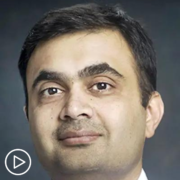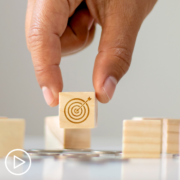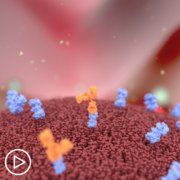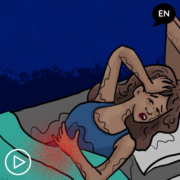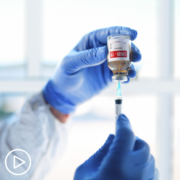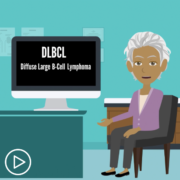An Expert’s Perspective on What It Means to Thrive With DLBCL
An Expert’s Perspective on What it Means to Thrive With DLBCL from Patient Empowerment Network on Vimeo.
What does it mean to thrive with diffuse large B-cell lymphoma (DLBCL)? Expert Dr. Amitkumar Mehta shares how patients often adjust to their diagnosis and provides advice that can help them thrive.
Dr. Amitkumar Mehta is Director of the Lymphoma Program and CAR T Program and Medical Director of the Clinical Trials Office at O’Neal Comprehensive Cancer Center at UAB. Learn more about Dr. Mehta.
Related Resources:
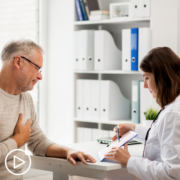
|
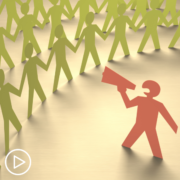
|
Transcript:
Katherine:
Dr. Mehta, welcome. Would you please introduce yourself?
Dr. Mehta:
I’m Amitkumar Mehta. I am the Director of Lymphoma Program and CAR T Program at the O’Neal Comprehensive Cancer Center at University of Alabama in Birmingham. I’m also Medical Director of Clinical Trial Office at UAB.
Katherine:
Great. Thank you so much for joining us today.
Dr. Mehta:
Thank you.
Katherine:
In your opinion, what does it mean to thrive with DLBCL?
Dr. Mehta:
Katherine, it’s really important question because the cancer is – we in our clinic call this a C word. And it is very dangerous, shocking most of the time. When somebody’s diagnosed with cancer, their whole life changes. And, in that, the first reaction is shock, that “Why me? Why this happen to me?” And either you’re a mother, you are a father, or many other roles that we have in our life. Everything kind of pauses.
And then it takes a little while for them to kind of understand the situation and kind of reset in a fight mode. And then everything changes. The other important thing is information about a cancer or any cancer as a matter of fact. Then we kind of assess the situation, assess the treatment options, which are plenty. And then we go in a mode that we want to fight it out. We see the light at the end of the tunnel. This all helps to kind of thrive in that situation.
But for that, the most important part is the information of the cancer, information about the treatment. And that way we can get together ourself and we can say that “Now I’m ready to fight whatever it may come in.” Many people cling to faith. Many people cling to their family. Many people cling to their support to have that mode of fight with a cancer.
And I say that, if all of this has – it’s kind of a recipe – if it all comes together, then you can thrive well throughout the whole – the phase of diagnosis to treatment to – if you’re cured, in a subsequent part of your life.

